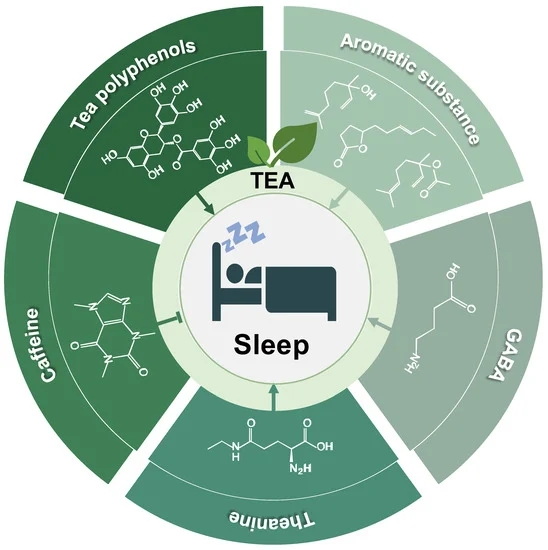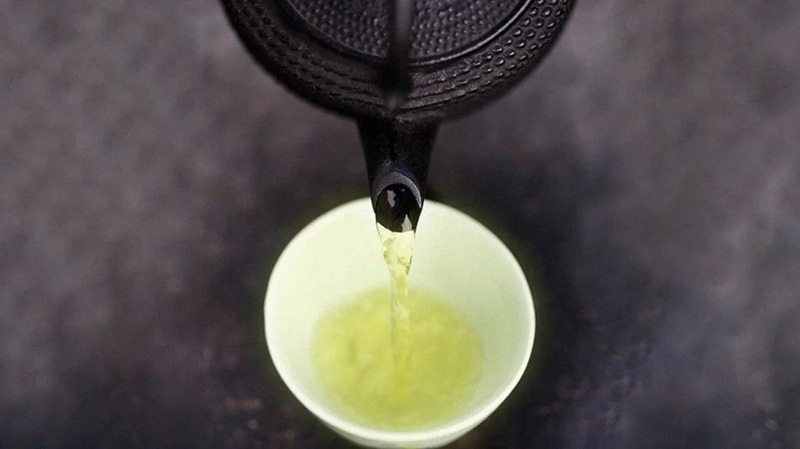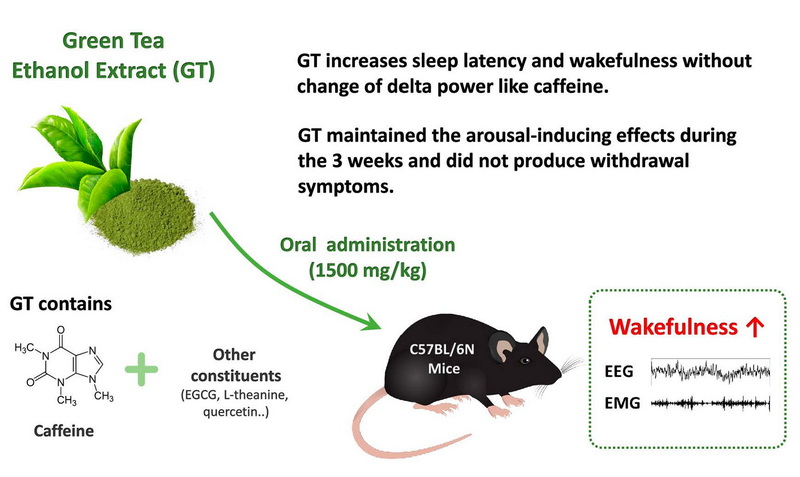Content Menu
● Understanding Green Tea Components
>> Caffeine in Green Tea
>> Theanine: A Calming Component
● The Dual Nature of Green Tea on Sleep
>> Positive Effects on Sleep Quality
>> Negative Effects Linked to Caffeine
● Timing Matters: When to Consume Green Tea
● The Protective Role of Green Tea Extract
● Cognitive Benefits Linked to Green Tea
● The Role of Matcha
● Potential Side Effects of Green Tea Extract
● Exploring Different Types of Green Tea
>> Types of Green Tea
● The Science Behind Sleep Disruption
● Personalizing Your Green Tea Experience
● Final Thoughts on Health Benefits
● Conclusion
● FAQ
>> 1. Does green tea always disrupt sleep?
>> 2. What is the best time to drink green tea?
>> 3. Can low-caffeine green tea improve my sleep?
>> 4. How much caffeine is in a cup of green tea?
>> 5. Are there any other health benefits associated with drinking green tea?
● Citations:
Green tea, derived from the *Camellia sinensis* plant, has been consumed for centuries due to its numerous health benefits. Among these benefits, its effects on sleep have garnered significant attention. While some studies suggest that green tea can promote better sleep quality, others indicate that its caffeine content may disrupt sleep patterns. This article explores the complex relationship between green tea extracts and sleep, examining both the positive and negative impacts.

Understanding Green Tea Components
Caffeine in Green Tea
Caffeine is a well-known stimulant found in various beverages, including coffee and tea. A typical cup of green tea contains about 30-50 mg of caffeine, which is significantly lower than coffee but still enough to affect sleep in sensitive individuals. Caffeine works by blocking adenosine receptors in the brain, reducing feelings of tiredness and promoting alertness. This mechanism can lead to difficulties in falling asleep if consumed close to bedtime.
Theanine: A Calming Component
In contrast to caffeine, the amino acid L-theanine present in green tea has calming effects. It promotes relaxation by increasing levels of GABA, dopamine, and serotonin in the brain. Studies have shown that L-theanine can help reduce stress and anxiety, potentially improving sleep quality. The balance between caffeine and L-theanine is crucial; while caffeine may disrupt sleep, L-theanine can counteract some of these effects.
The Dual Nature of Green Tea on Sleep
Positive Effects on Sleep Quality
Several studies indicate that green tea can enhance sleep quality when consumed appropriately. For instance:
- Low-Caffeine Green Tea (LCGT): Research has shown that low-caffeine variants of green tea can reduce stress and improve sleep quality among middle-aged individuals. Participants consuming LCGT reported lower levels of fatigue and better overall sleep quality compared to those drinking standard green tea.
- Polyphenols and Antioxidants: Green tea is rich in polyphenols, particularly epigallocatechin gallate (EGCG), which have been associated with improved mood and reduced anxiety levels. These compounds may help promote better sleep by mitigating stress responses.
Negative Effects Linked to Caffeine
Despite its benefits, the caffeine content in green tea can lead to disrupted sleep patterns if consumed excessively or too close to bedtime:
- Increased Sleep Latency: Studies have demonstrated that higher caffeine intake correlates with longer times taken to fall asleep (sleep latency). This effect is particularly pronounced in individuals who are more sensitive to caffeine.
- Frequent Nighttime Awakenings: Caffeine consumption can lead to increased nighttime awakenings, reducing overall sleep quality. This disruption is especially significant for older adults who may already experience fragmented sleep patterns.
Timing Matters: When to Consume Green Tea
The timing of green tea consumption plays a critical role in its impact on sleep:
- Daytime Consumption: Drinking green tea during the day allows individuals to benefit from its antioxidants and stress-reducing properties without interfering with nighttime rest. Many experts recommend avoiding caffeinated beverages within two hours of bedtime.
- Evening Alternatives: For those who enjoy a warm beverage before bed but wish to avoid caffeine, herbal teas or decaffeinated versions of green tea may be preferable options.
The Protective Role of Green Tea Extract
Research has also explored the protective effects of green tea extract against various health issues, including those related to sleep deprivation. A study investigating chronic REM sleep deprivation in rats found that administering green tea extract improved cardiovascular health markers that were negatively impacted by lack of sleep. This suggests that while caffeine may disrupt sleep, other components in green tea can mitigate some adverse effects associated with poor sleep quality[1].
Cognitive Benefits Linked to Green Tea
Beyond its effects on sleep, green tea has been studied for its cognitive benefits. The combination of L-theanine and caffeine appears to enhance attention and cognitive performance without leading to the jitteriness often associated with caffeine alone. This dual effect could be beneficial for individuals looking to improve focus during waking hours while still maintaining good sleep hygiene[2].
The Role of Matcha
Matcha, a powdered form of green tea known for its high antioxidant content, has also been studied for its effects on sleep quality. Although it contains both caffeine and L-theanine, some studies suggest that matcha may not significantly affect objective measures of sleep but could improve subjective feelings of restfulness upon waking[3]. This indicates that while matcha contains components that could disrupt sleep, it also offers potential benefits that might enhance overall well-being.

Potential Side Effects of Green Tea Extract
While moderate consumption of green tea is generally safe for most people, excessive intake—especially from concentrated extracts—can lead to side effects such as insomnia, anxiety, and gastrointestinal disturbances[5][6]. Individuals with severe caffeine sensitivities are particularly susceptible to these adverse effects. Therefore, it is essential for consumers to be mindful of their intake levels.
Exploring Different Types of Green Tea
Types of Green Tea
There are several varieties of green tea available globally:
- Sencha: The most popular type in Japan; it has a grassy flavor profile.
- Matcha: A finely ground powder made from shade-grown leaves; known for its high antioxidant content.
- Gyokuro: Another shade-grown variety; it has a sweeter taste due to higher chlorophyll levels.
- Longjing (Dragon Well): A Chinese variety known for its flat leaves and nutty flavor.
Each type offers different levels of catechins and caffeine which may influence their impact on sleep differently.
The Science Behind Sleep Disruption
Understanding how substances like caffeine affect our bodies can help clarify why they disrupt our ability to fall asleep:
- Adenosine Receptors: Caffeine blocks adenosine receptors which promote drowsiness.
- Half-Life: Caffeine has a half-life ranging from 3-7 hours depending on individual metabolism; this means that even after several hours post-consumption, enough caffeine could remain in your system to affect your ability to fall asleep.
Personalizing Your Green Tea Experience
To maximize the benefits while minimizing potential disruptions:
- Experiment with different types of green teas at various times throughout your day.
- Consider herbal teas or decaffeinated options if you enjoy warm beverages before bed.
- Monitor your body's response; keeping a diary may help identify patterns related to your consumption habits and their impact on your sleep quality.
Final Thoughts on Health Benefits
In addition to potential impacts on sleep:
- Regular consumption may contribute positively toward weight management due to its metabolism-enhancing properties.
- Antioxidant-rich compounds found in green teas are thought to play a role in reducing inflammation throughout the body.
By understanding both sides—both the beneficial components as well as potential drawbacks—individuals can make informed choices about their consumption habits regarding green teas relative not only towards enhancing their overall health but also ensuring restful nights ahead.
Conclusion
The relationship between green tea extracts and sleep is multifaceted. While components like L-theanine and polyphenols can enhance relaxation and improve sleep quality, the caffeine content poses a risk for those sensitive to stimulants or consuming it too late in the day. Therefore, moderation and timing are key when incorporating green tea into one's diet for optimal health benefits without compromising sleep.

FAQ
1. Does green tea always disrupt sleep?
No, while the caffeine in green tea can disrupt sleep for some individuals, others may find that it helps them relax due to its L-theanine content.
2. What is the best time to drink green tea?
It is generally recommended to consume green tea earlier in the day or at least two hours before bedtime to minimize any potential disruptions in sleep.
3. Can low-caffeine green tea improve my sleep?
Yes, low-caffeine variants of green tea have been shown to reduce stress and improve overall sleep quality without the disruptive effects of higher caffeine content.
4. How much caffeine is in a cup of green tea?
A typical cup of green tea contains about 30-50 mg of caffeine, which is less than a cup of coffee but still significant enough to affect sensitive individuals.
5. Are there any other health benefits associated with drinking green tea?
Yes, beyond its effects on sleep, green tea is rich in antioxidants and has been linked to various health benefits including improved cardiovascular health and reduced risk of certain diseases.
Citations:
[1] https://www.springermedizin.de/exploring-the-protective-role-of-green-tea-extract-against-cardi/50072480
[2] https://www.nature.com/articles/d42473-023-00394-0
[3] https://pmc.ncbi.nlm.nih.gov/articles/PMC11397442/
[4] https://pubmed.ncbi.nlm.nih.gov/38031409/
[5] https://www.medicalnewstoday.com/articles/269538
[6] https://www.drugs.com/mtm/green-tea.html
[7] https://hsph.harvard.edu/news/green-tea-healthy-habit/
[8] https://www.urmc.rochester.edu/encyclopedia/content?contenttypeid=19&contentid=GreenTeaExtract
[9] https://www.vumc.org/poison-control/toxicology-question-week/march-12-2021-what-are-adverse-effects-green-tea-extract
[10] https://health.clevelandclinic.org/green-tea-extract-a-better-way-to-boost-energy-or-not






























